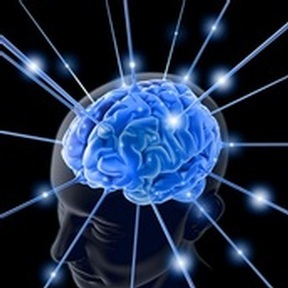GPS tracking devices being developed to monitor people with dementia in care homes
Researchers at Glasgow Caledonian University are looking into developing low-cost GPS-style tracking devices to monitor the movements of people with dementia in care homes, hospitals and housing associations.

Dr Sinan Sinanovic is leading the project to analyse the feasibility of using LED lighting to precisely track people with dementia, who are susceptible to agitation and wandering episodes.
A growing number of care homes, housing associations and hospitals are moving towards installing energy efficient LED-based lighting. Researchers from Glasgow Caledonian University hope to use this LED technology for wireless data communications.
Dr Sinanovic said: “We are combining the ‘internet of things’ - the interconnection of objects within the existing Internet infrastructure - with the digital health investment to produce inexpensive electronic solutions to improve healthcare.”
Jeroen Blom, from the DHI Experience Lab team led by the Glasgow School of Art, added: “This project offers the opportunity to explore how an emerging technology can be utilised in the development of solutions for dementia sufferers through design-led collaboration involving users and experts.”
The hope is that if the project is successful, care homes, hospitals and housing associations will be able to keep people with dementia independent for as long as possible and without the privacy issues associated with internal cameras.
Dr Sinanovic, who has research interests in wireless communications, will work with colleagues Professor Lynne Baillie, Dr Roberto Ramirez-Iniguez and Dr Wasiu O Popoola from GCU on the project, which is being funded by the Digital Health Institute (DHI).
The DHI is a Scottish Funding Council initiative to bring together health, care and third sector professionals and academics to work together on innovative digital technologies.
The DHI will work with GCU and the North Glasgow Housing Association to set up a lab for user scenarios to test the feasibility of the tracking devices.
Eighty per cent of people living in care homes have a form of dementia or severe memory problems, according to The Alzheimer’s Society.
Latest Innovative Care News
 13-May-19
'Pink drink' brain cancer treatment rolled out across NHS in memory of Baroness Jowell
13-May-19
'Pink drink' brain cancer treatment rolled out across NHS in memory of Baroness Jowell
 25-Apr-19
Louis Tomlinson helps 83-year-old who lost wife to dementia complete bucket list
25-Apr-19
Louis Tomlinson helps 83-year-old who lost wife to dementia complete bucket list
 22-Mar-19
UK's top care home handyman takes residents to pub for pie and pint
22-Mar-19
UK's top care home handyman takes residents to pub for pie and pint
 12-Feb-19
Michael McIntyre's jokes tested to see if they stop elderly catching flu
12-Feb-19
Michael McIntyre's jokes tested to see if they stop elderly catching flu
 07-Jan-19
'We were lucky to find it': Family's delight as care home is rated Outstanding
07-Jan-19
'We were lucky to find it': Family's delight as care home is rated Outstanding